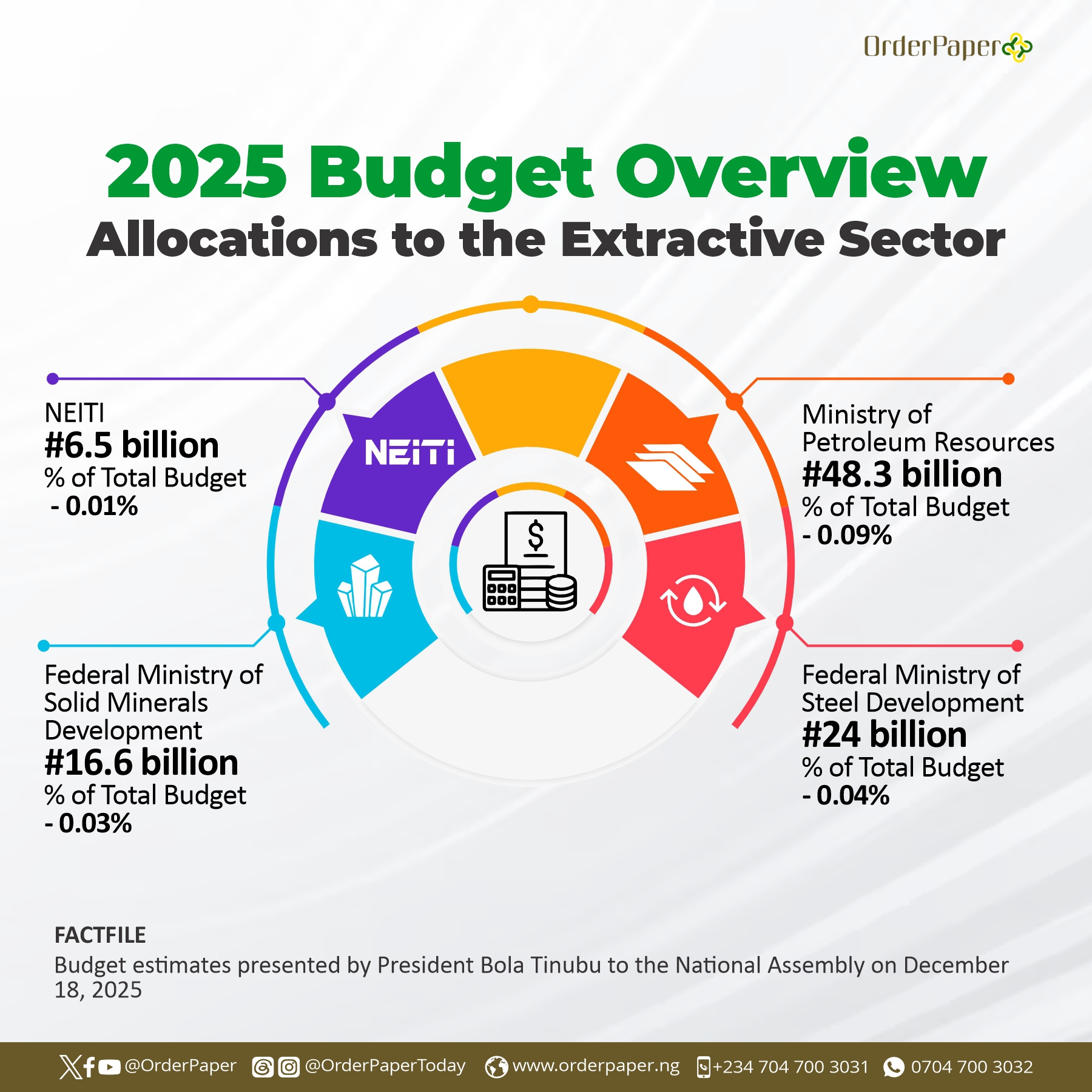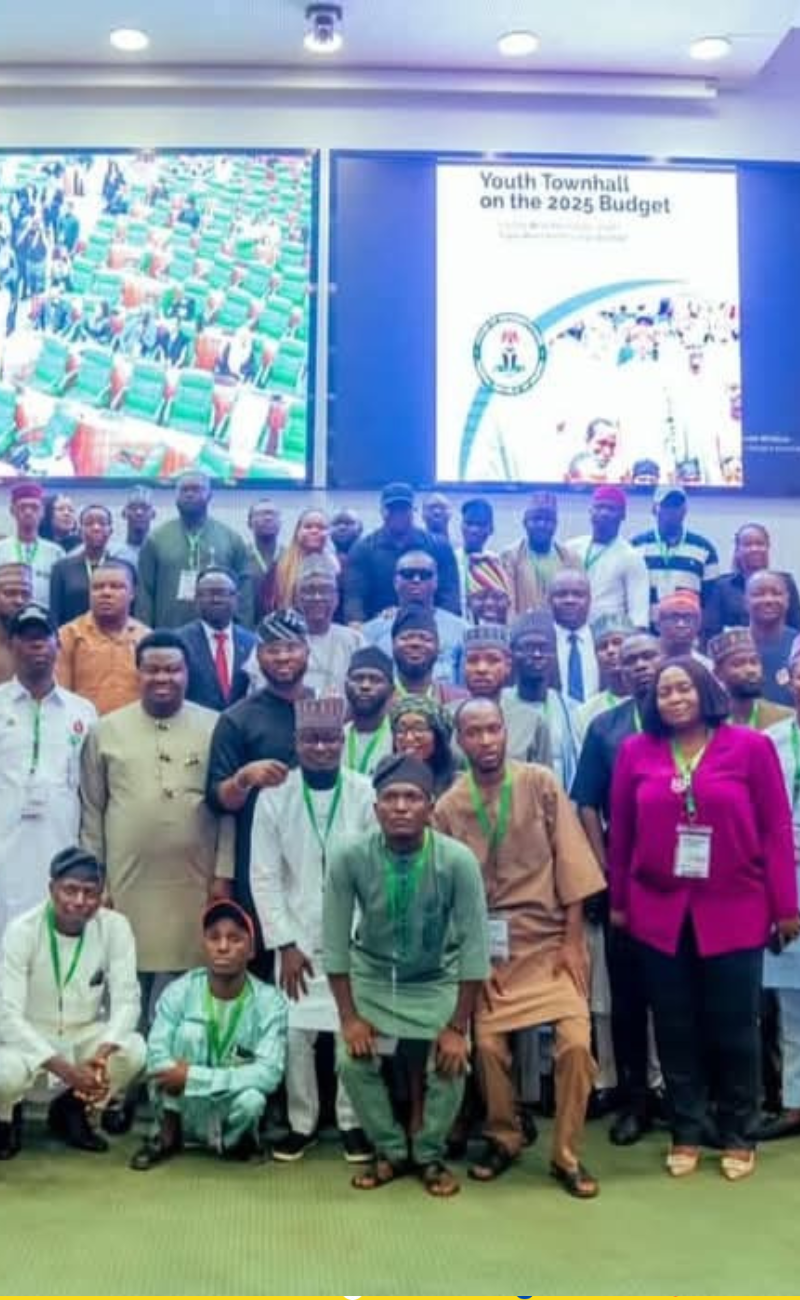The extractive sector, including petroleum and solid minerals development, forms the bedrock of the economy of Nigeria

The budget serves as a critical framework for any nation’s economic strategy, guiding financial allocations and shaping development priorities. It is an essential element of the economy, providing a comprehensive blueprint that outlines where funds will be directed and how they will be utilized to achieve government objectives. By establishing clear priorities, the budget plays a vital role in steering economic growth and development.
Nigeria’s 2025 budget, titled “Budget of Restoration: Securing Peace and Building Prosperity,” was presented by President Tinubu to the National Assembly last month. With a total expenditure of ₦49.70 trillion, this budget aims to address pressing issues across various sectors of the economy over the next twelve months.
According to the president, this budget is a cornerstone of the renewed hope agenda, demonstrating a commitment to stabilizing the economy, improving lives, and repositioning Nigeria for enhanced performance on the global stage.
What does 2025 hold for the extractive sector?

For the extractive sector, a total allocation of ₦95.44 billion has been designated through various ministries and agencies such as:
- Ministry of Petroleum Resources: ₦48.3 billion
- Ministry of Steel Development: ₦24 billion
- Ministry of Solid Minerals Development: ₦16.6 billion
- Nigerian Extractive Industry Transparency Initiative (NEITI): ₦6.5 billion
Compared to previous years, this allocation reflects a strategic focus on enhancing the sector, which is vital for economic stability and growth.
READ ALSO: Interview: What lawmakers had to say about 2025 budget estimates
Why are these figures important?
Understanding these budget allocations is crucial as they directly influence the performance of the extractive sector throughout the year. With only 0.19percent of the overall budget dedicated to this sector, it is imperative to monitor how these funds will be utilised to drive growth and development.
The extractive sector—including oil, gas, and solid minerals—is pivotal to Nigeria’s economy, significantly contributing to revenue generation and foreign exchange earnings. Beyond its financial contributions, the sector also has immense potential to create jobs and stimulate broader economic growth.
Therefore, adequate funding for this sector is essential for diversifying the economy and addressing ongoing challenges within it. While sectors like defence and security, infrastructure, health, and education receive substantial allocations, the extractive sector’s funding appears comparatively modest. This disparity raises concerns about enhancing the sector’s potential to drive economic stability and growth.
READ ALSO: 2025 Budget: Allocations to women, youths and vulnerable people | GESI TRACKER
Passing the budget and accountability
As national assembly considers these estimates and eventially pass the 2025 budget, it is imperative that civic actors pay closer attention to allocations in the extractive sector, particularly in historically overlooked areas such as solid minerals. These sectors hold immense potential for stabilizing Nigeria’s economy; they are not only crucial for immediate economic returns but also for long-term sustainability and growth.
By advocating for greater attention and investment in these areas during future budget cycles, particularly in solid minerals and related sectors, we can unlock significant potential for Nigeria’s economy. Leveraging our rich natural resources will be key to achieving economic diversification and stability in the coming years.



